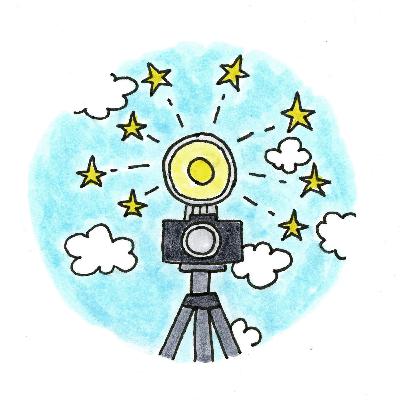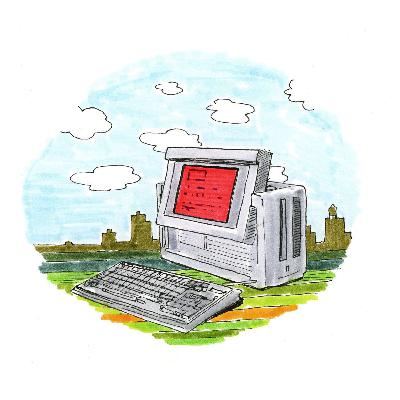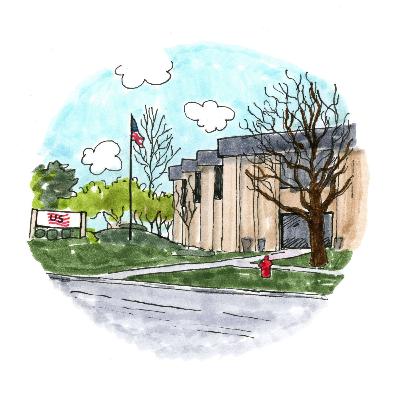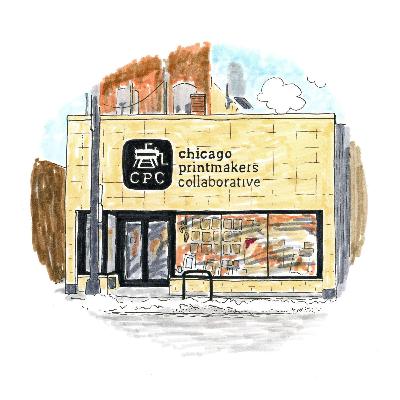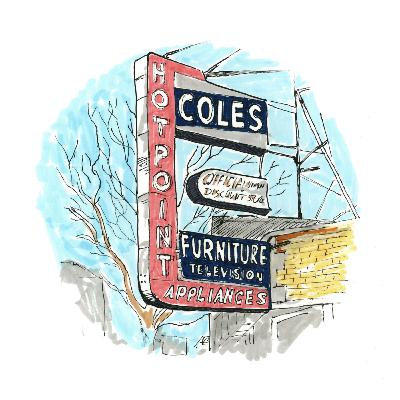Discover The Distance
The Distance

The Distance
Author: Basecamp
Subscribed: 496Played: 605Subscribe
Share
© All rights reserved
Description
What's the hardest thing about business? Not going out of business. The Distance features stories of private businesses that have been operating for at least 25 years and the people who got them there. Hear business owners share their stories of hard work, survival and building something that lasts. The Distance is a production of Basecamp, the company behind the leading project management app.
84 Episodes
Reverse
This is the first episode of our brand new podcast called Rework. If you like it you can subscribe to Rework on Apple Podcasts or wherever you get your podcasts.Welcome to the first episode of Rework! This podcast is based on Jason Fried and David Heinemeier Hansson's 2010 best-selling business book, which was itself based on years of blogging. So what better way to kick off this show than talking about byproducts? In this episode, Jason explains how Basecamp's ideas have been packaged as blog posts, workshops, and books. We also visit a 145-year-old sawmill in Ontario, Canada to see how this family-owned business sells its physical byproducts.
Lily Liu was 16 years old when a talent scout approached her at a department store. She started her career as a model, but found her true calling behind the scenes, first representing her three daughters and then opening her own talent agency. For Lily, who's spent her career working for opportunities for Asian and Asian-American talent, the issue of representation has taken on a special resonance.
Tim Masters describes himself as "just a mattress maker," but that belies the business acumen he's gained over decades of building and selling beds. Tim's store in the Chicago suburbs, Quality Sleep Shop, opened in 1969 and has held its own against the proliferation of private equity-backed mattress corporations and chain stores. As Big Mattress has grown more complex, churning out endless permutations of confusingly named products, Tim has embraced simplicity.
Ben and Larry are longtime owners of two different music-related businesses, a payroll service for musicians and an auctioneer of rare classical LPs. They don't know each other, but they have something in common: They're both still running their businesses on custom software written in the 1980s by the same developer. If you miss the sound of a dot matrix printer at work, this is the episode for you.
Troy Henikoff was a college student in 1984 when he wrote his first program, a piece of software to help his grandfather's steel warehouse manage their inventory. That summer project led Troy to start his own software consulting business a couple years later. This is an atypical Distance story about beginnings, endings and unexpected legacies.
In 2010, as Worksman Cycles was emerging from the recession and ready to grow again, the maker of heavy-duty cycles saw an exciting opportunity to supply the bikes for New York City's bike share program. But the city rejected Worksman's proposal, and that disappointment lay the groundwork for the company to relocate to South Carolina, leaving behind the city it had been in since its founding in 1898.
Worksman Cycles is the oldest American bicycle manufacturer that still makes its products in the U.S. Founded in New York in 1898, Worksman has outlasted the demise of American cycle manufacturing by focusing on a niche category: heavy duty tricycles that factory workers use for hauling equipment and getting around industrial plants. And Worksman's president is determined to keep the company in the U.S., even as that commitment has been tested through the years.
Nom Wah Tea Parlor is New York Chinatown's oldest dim sum restaurant. For decades, it served Cantonese dumplings and rolls in the traditional way, from trolleys pushed around the restaurant. When Wilson Tang took over Nom Wah in 2011, he switched from trolleys to menus with pictures and started serving dim sum through dinner. He also opened new locations that broadened Nom Wah's repertoire beyond dim sum. These were big changes for a restaurant that opened in 1920, but Wilson saw them as measures to secure Nom Wah's future for its next century in business.
Matt Stock is a business owner who loves marketing and has embraced the unglamorous job of selling a pretty mundane service: basement waterproofing. He's tried everything from Yellow Pages to billboards to Internet advertising at U.S. Waterproofing, his 60-year-old family business. But Matt faced one of his greatest challenges as a business owner and a marketer in 2012, when Illinois was hit with a drought.
Every year in the weeks leading up to Easter, the four-person staff at Danish Maid Butter Co. starts counting sheep. The Chicago company has made lamb-shaped butter for more than 50 years, moving from wooden molds dropped in cans of ice water to a more modern process. There are other parts of Danish Maid's business that are larger and growing faster, but the two siblings that run the company remain committed to the butter lambs as an important link to both their family legacy and current generations of customers.
In an industry known for selling commodities at low margins, Jungle Jim's International Market in suburban Cincinnati, Ohio is something else entirely. It's a super-sized grocery store that's also a tourist attraction with animatronic characters, a dedicated events center, and a working monorail. At the center of this unexpected food empire is a businessman known simply as Jungle, who started with a pop-up produce stand and built something closer to a theme park than a grocery store.
Cullinan's Stadium Club and Beverly Records sit next door to each other in the Chicago neighborhood of Morgan Park. The owners of the two businesses have been friendly since Dan Cullinan opened his bar and grill in 1989. But even Dan couldn't imagine how John Dreznes of Beverly Records would rush in to help when Cullinan's Stadium Club ran into financial trouble in late 2016.
In 1989, Deborah Maris Lader had recently moved to Chicago and was looking for a studio where she could make prints and meet other artists. She couldn't find a place like that, so she opened her own: the Chicago Printmakers Collaborative. Deborah also took the unconventional step of setting up the print shop and gallery as a business rather than a non-profit. She's learned how to run a sustainable enterprise without grants or donations, which are the lifeblood of other arts organizations, and to balance her dual roles as business owner and artist.
Bruce Roper never planned to start a business. As a teenager, he wanted to be a Beatle. As an adult, he moved to Chicago after a brief stint running a music store and began fixing guitars. Over the next quarter century, Bruce built up a modest but steady one-man business repairing and building instruments, as well as teaching guitar building. Bruce's students come to him seeking the secrets of making guitars, but he's the first to say there are no secrets. It's just a matter of doing it, and there's no substitute for the decades of experience Bruce has accumulated.
Jewelry tells a story. For Kathy, the owner of a 90-year-old jewelry store in Berwyn, Illinois, every piece of her jewelry adds up to a larger, richer history about the business that she joined as a 16-year-old part-time employee and ended up running. A lot of small businesses are labors of love, but the story of Kathy and Hursts' Berwyn Jewelers is a love story in more ways than one.
The neighborhood appliance store is all but gone from the American retail landscape. But on Chicago's north side, Cole's Appliance and Furniture Co. has been selling refrigerators and sofas from the same corner since 1946. The Krasney family, which has owned Cole's for three generations, has learned how to outlast big box stores, online competition, and the booms and busts of the housing market.
The modern office has gone from private offices to cubicles, and from cube farms to more open spaces with lower partitions. All those changes have been good business for Office Furniture Resources, which is marking 25 years of buying and reselling the chairs, desks and cubicles that make up American offices. OFR operates in an industry that’s completely behind the scenes yet touches the lives of workers everywhere.
The Richardson family arrived in Spring Grove, Illinois in 1840, when brothers Robert and Frank each claimed 80 acres of farmland that had become available for homesteading. Successive generations of Richardsons tried their hand at cash crops, dairy cows and pig production. But it was the agritourism business that proved the most sustainable for the 175-year-old family farm, which today is operated by the fifth and sixth generations of Richardsons. The family sells cut-your-own Christmas trees during the holidays and operates the world’s largest corn maze in the fall. They’ve become experts in seasonal entertainment, offering a nostalgic rural escape from suburban sprawl.
When the Chicago Cubs won the 2016 World Series, Jim Piko Jr. wasn't just thrilled as a longtime fan of the team. Marathon Sportswear, the screen printing company his father started in the family garage in 1980, began printing tens of thousands of officially licensed Cubs t-shirts as soon as the team won the championship. It was the equivalent of a farmer's bumper crop for Jim. Being prepared for that moment took weeks of advance preparation—and years of slowly building a business, one t-shirt at a time.
In 2009, as Chicago manufacturer Wiegel Tool Works was emerging from the recession and wanting to hire again, company president Aaron Wiegel noticed that his job ads for tool and die makers were going unfilled for months. That realization led to his restarting an apprenticeship program, which he pitches as an alternative to college—especially at a time when the cost of higher education looks increasingly to be a bad deal.


